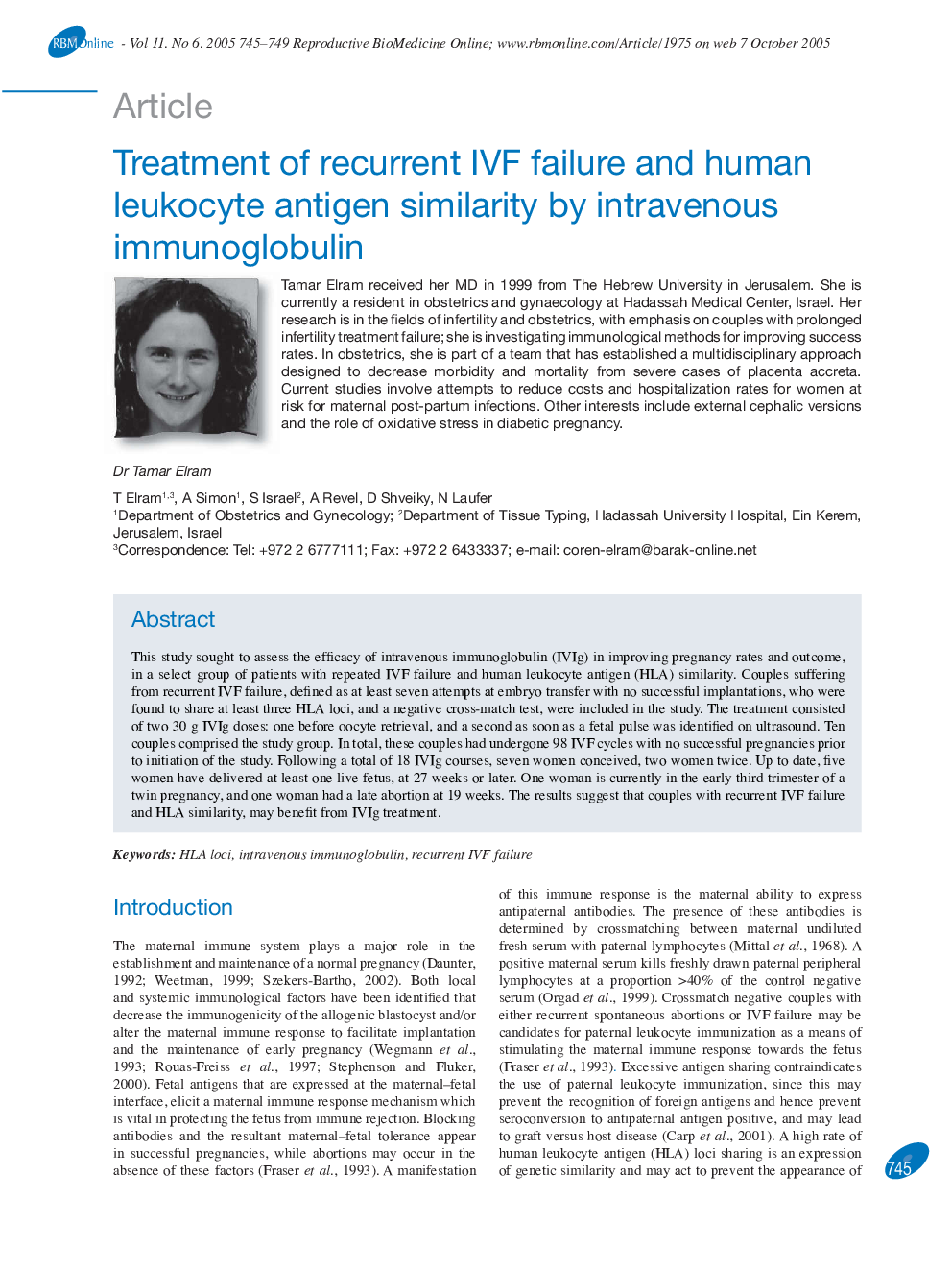| Article ID | Journal | Published Year | Pages | File Type |
|---|---|---|---|---|
| 9334841 | Reproductive BioMedicine Online | 2005 | 5 Pages |
Abstract
This study sought to assess the efficacy of intravenous immunoglobulin (IVIg) in improving pregnancy rates and outcome, in a select group of patients with repeated IVF failure and human leukocyte antigen (HLA) similarity. Couples suffering from recurrent IVF failure, defined as at least seven attempts at embryo transfer with no successful implantations, who were found to share at least three HLA loci, and a negative cross-match test, were included in the study. The treatment consisted of two 30 g IVIg doses: one before oocyte retrieval, and a second as soon as a fetal pulse was identified on ultrasound. Ten couples comprised the study group. In total, these couples had undergone 98 IVF cycles with no successful pregnancies prior to initiation of the study. Following a total of 18 IVIg courses, seven women conceived, two women twice. Up to date, five women have delivered at least one live fetus, at 27 weeks or later. One woman is currently in the early third trimester of a twin pregnancy, and one woman had a late abortion at 19 weeks. The results suggest that couples with recurrent IVF failure and HLA similarity, may benefit from IVIg treatment.
Related Topics
Health Sciences
Medicine and Dentistry
Obstetrics, Gynecology and Women's Health
Authors
T Elram, A Simon, S Israel, A Revel, D Shveiky, N Laufer,
